.jpg)
Linda Weaver Clarke was raised on a farm surrounded by the rolling hills of southern Idaho and has made her home in southern Utah among the beautiful red mountains and desert heat. She travels throughout the United States, teaching a “Family Legacy Workshop” at libraries, encouraging others to turn their family history and autobiography into stories. Linda feels the importance of family legacy can never be over emphasized.
Clarke is the author of the historical fiction series, “A Family Saga in Bear Lake, Idaho,” which include the following novels: Melinda and the Wild West - a semi-finalist for the “Reviewers Choice Award 2007,” Edith and the Mysterious Stranger, Jenny’s Dream, David and the Bear Lake Monster, and Elena, Woman of Courage.
Here is my interview with Linda:
M.B.: Tell us about your current release and where you got the inspiration for it.
Linda: “David and the Bear Lake Monster” is the fourth novel in a series called A Family Saga in Bear Lake, Idaho. Each book has its own plot and can be read separately, but it’s nice to begin at the beginning and watch the characters grow up. I love romance so I add a new love story in each of these novels, which can be read by both teens and adults.
This book is all about deep-rooted legends, long family traditions, and a few mysterious events. David is trying to solve personal issues and overcome his troubles! He quickly becomes one with the town and its folk and finds himself entranced with one very special lady and ends up defending her honor several times. She isn’t like the average woman. Sarah is different. This beautiful and dainty woman has a disability that no one seems to notice. He finds out that Sarah has gone through more trials than the average person. She teaches him the importance of not dwelling on the past and how to love life. And how about the Bear Lake Monster? Does it really exist?
What was the inspiration behind the book? It was actually my great grandmother who was my inspiration. In fact, I dedicated this book to her. She became deaf at the age of one and was a very brave and courageous woman. She never let her deafness stop her from developing her talents. I took a lot of her experiences from her biography and gave them to my heroine to bring some reality into my story. To me, the experiences of my ancestors have always intrigued me.
Sarah was known as one of the most graceful dancers in town. She never sat on the sidelines at dances because of her natural ability. She was known for gliding across the floor with ease, with just a touch of her partner’s hand. Sarah had such agility and gracefulness, not only on the dance floor, but also while swimming and diving. People would actually throw coins in the water so they could watch her dive after them. They would applaud, letting her know how much they enjoyed watching her, and then throw another coin in the water.
An intruder actually hid in her bedroom under her bed, thinking he could take advantage of her since she was deaf. He must have thought she was an easy victim but was sadly mistaken. She swatted him out from under her bed with a broom, and all the way out of the house, and down the street for a couple blocks, whacking him as she ran. She was a spunky woman! Because of my admiration for my great grandmother, I named my character “Sarah.”
In my research about the “hearing impaired,” and talking to a dear friend who became deaf in her youth, I became educated about the struggles they have to bear. It was a surprise to find out that some struggle with self-esteem and the fear of darkness. I didn’t realize that concentrating on reading lips for long periods of time could be such a strain, resulting in a splitting headache. After all my research, I found that I had even more respect for my great grandmother and her disability. What a courageous woman!
The different accounts of the Bear Lake Monster, the names of the people who saw it and their contribution to this legend are found in the bibliography at the end of my book. The accounts were true, according to Bear Lake History. To read an excerpt, visit: http://www.lindaweaverclarke.com/samplechapters.html.
M.B.: When did you first know you wanted to be an author?
Linda: It all started while writing my ancestors’ stories. That was when I realized that I couldn’t stop writing so I turned to historical fiction. Since I had just finished writing their stories, it was still fresh in my mind. So I decided to add their experiences to my fictional characters to bring the story to life. Here’s an example. In my second book, “Edith and the Mysterious Stranger,” I based this story on the courtship of my parents. They didn’t meet the conventional way. They met through letters. She said that she fell in love with the soul of my father and they didn’t even know what one another looked like. The day they met, my mother told me that her heart leapt within her and a warm glow filled her soul and she knew she would marry this man. In my story, you don’t know who the mysterious stranger is until the end of the book. Some readers guessed right while others were pleasantly surprised. In the Author’s Notes, I tell my readers what is actually true. One thing I can tell you, being an author all started when I began writing my ancestors’ stories.
M.B.: What was the pathway like for you to get your first book published?
Linda: It was a miracle. No, a blessing! It only took me one year to find my publisher. I was turned down a few times with the statement: “This isn’t what we’re looking for.” But I wouldn’t give up because I believed my stories were good and would interest many people. When I finally found a traditional publisher, I was elated. At the time, I thought one year was a long time but have since found that was a short time compared to some.
M.B.: Were you ever discouraged along the way? If so, how did you deal with it?
Linda: Yes, very discouraged at times. After getting my first books published, I found out that it was difficult getting the word out to the public. I thought the publisher would do all the work but not so. I found that publishers expect the author to get out among the people and give lectures, get radio and television interviews, etc. I was surprised but have adapted quite well. My major in college was theater and music so that helped me a great deal with my “presence” on radio and TV.
M.B.: What is your writing schedule like?
Linda: I begin in the morning when I’m fresh and not worn out from the day. Then I insert cleaning the house or doing dishes in between to give my mind a break. I usually start at 9:00 in the morning until afternoon.
M.B.: Where do your ideas come from? How do you know the idea is
good enough to write a book about it?
Linda: My ideas come from every day life. Here’s an example: My first book, “Melinda and the Wild West,” was inspired by a true experience that happened to me as a substitute teacher. A former teacher labeled a young girl as a troublemaker and her classmates would not let her forget it. The teacher put her behind the bookshelves so she wouldn’t be a menace to anyone. A similar experience actually happened to my own daughter and my brother way back in the ‘50s. I wanted to tell this story but in the form of historical fiction, bringing out the importance of not labeling students, that negative labels tear down and positive labels build up. This book eventually won an award as one of the semi-finalists for the “Reviewers Choice Award 2007.”
M.B.: What words of advice do you have for other writers who desire to
have their manuscripts become books in print?
Linda: Never give up. If you believe in yourself, then it’ll come true. Be patient and continue writing until you find a publisher.
M.B.: What is your process of brainstorming a story? Do you just sit
down and write, waiting to see what happens next? Or do you outline
first?
Linda: I always outline my story first. That way I feel more organized. I list the things that I want to happen in my book and then check it off when it happens. Many times my characters will do things that I didn’t expect, though. And this really surprised me. I had gotten to know them so well, that I knew them deep down inside and knew how they would react to a situation.
M.B.: Do you ever experience a snag in a story, a form of writer's
block? If so, how do you deal with it?
Linda: I speak to my husband or one of my daughters and discuss what I’m trying to accomplish. I tell them what I’ve run up against, etc. They’ll give me good ideas and sometimes just talking makes a light go on in my brain.
M.B.: Do you need absolute quiet to write? Do you listen to music when
you are writing?
Linda: If I have music, it has to be soothing, without words. Otherwise, I would be typing the lyric of the song. I usually work in a quiet atmosphere, though.
M.B.: Who has made the greatest difference for you as a writer?
Linda: My husband has made the greatest difference in my life. He supports me in everything I do. He even comes with me on a few of my tours. Without his support, I could not be a writer.
M.B.: Which of your books is your favorite, and why?
Linda: There is something special about each one so this is hard. I believe it’s a toss up between the third and fifth book in this series. “Jenny’s Dream” was fun to write because the subplot is about Old Ephraim, the ten-foot grizzly bear. It was a blast to research and part of Idaho history. Not only that, I love the relationship between the husband and wife and the children.
In “Jenny’s Dream,” Jenny learns to forgive. This also comes from a family experience. Jenny has many dreams and wants to accomplish something remarkable in the world. She has read about the courageous women who were self-reliant, daring and determined such as Susan B. Anthony who fought for Equal Rights, an important part of American history. This was one of Jenny’s Dreams, to make a difference in the world. There is one thing standing in her way of focusing on her dreams, though. She must learn to forgive and put her past behind her. In this story, childhood memories begin bothering her and she realizes that before she can choose which dream to follow, she must learn to forgive those who have wronged her. She learns that forgiveness is essential to our well being, that we’re only hurting ourselves by not forgiving. This story is about accomplishing one’s dreams and the miracle of forgiveness.
While researching the last book, “Elena, Woman of Courage,” I absolutely fell in love with the 1920s language. The new generation spoke a language that their parents didn’t understand. They said words like: Cat’s pajamas! Ah, horsefeathers! Attaboy! Baloney! You slay me! When referring to a woman, they used doll, tomato, and bearcat. When a person was in love, they were goofy. If a person was a fool, they were a sap. And when a woman wasn’t in the mood for romance, she would say, “The bank’s closed.” I used this new language in my book and had so much fun with it.
When Elena settles into a strict conservative town as the newest doctor, a slew of problems begin to arise. The town is not ready for a female doctor, let alone one so strong and independent. Elena Yeates, the town’s newest doctor, must struggle to prove herself in this western town, while keeping her composure, poise, and femininity. As she fights to prove herself, the town’s most eligible bachelor finds it a challenge to see if he can win her heart. With the 1920’s rise of women’s rights, this novel gives you great insight at the struggles women had to go through, all the while watching a young love blossom!
M.B.: What are you working on now?
Linda: The Family Saga is now completed. The fifth book, “Elena, Woman of Courage,” was just released this week. So I’m now working on an adventure series called The Adventures of John and Julia Evans. I always enjoy putting a little history in each of my novels to educate my readers, even if it’s not historical fiction. The mysteries of the Anasazi Indians, the Mayas, Montezuma’s Treasure, and the Lost Dutchman Mine have intrigued archaeologists and scientists for many years. In the Adventures of John and Julia Evans series, I delve into such mysteries. This series isn’t historical fiction but set in now days. My editor listed it as a mystery/suspense with a bit of romance added for good measure.
M.B.: Any final words you would like to share
Linda: To those who are interested in writing their own “Family Legacy,” I wouldn’t put it off. The importance of family legacy can never be over emphasized. I believe we are the people we are because of our ancestors. Who are they and what were their traditions? Did they fight for a cause and what was it about? Each of us has a story from our ancestors or even our very own story to tell. If these stories are unwritten, then how are our children going to know of their parentage? It’s up to us to write these experiences down. We must record and share these stories with our children.
There are just a few things to remember. First, collect your thoughts; write down any experiences that you remember. Talk to family members and discuss memories. You can make several short stories, making the history into segments. Or you can write the whole history as a continuous flow. Your children will want to know their heritage, what their ancestors stood for. Make your Family Legacy something your children will remember, something they will be proud of.
Emotion is one example how you can make your story come to life. It’s the secret of holding a reader, the difference between a slow or dynamic recounting of a story. When you feel the emotion inside, so will your readers. By giving descriptions of emotion, it helps the reader feel part of the story as if he were actually there himself. It helps us feel satisfied because we can feel what the character feels. Emotion is part of our lives, so why ignore such an important element in a story? But remember: Show, don’t tell.
If an ancestor had to defend her home from marauders, how did she feel? If she were frightened, then her heart would be pounding against her ribs. If an outlaw challenged your great grandfather, what were his feelings deep down inside? If he were angry, did his face turn red with defiance? If your grandfather was faced with a grizzly bear in the wild, how did he react? If he were shocked, did his face turn pale and was he trembling with fear? These are questions that you must research. Find out all you can so you can tell your story. If your ancestor didn’t record his feelings, then imagine what it would be like in a given situation.
For those writing their own autobiography, don’t forget descriptions of love. You know what it feels like to be in love or to be loved, so describe it. Tell how you met your husband or wife and how it felt when you realized you were in love for the first time. Did your heart swell within, sending a warm feeling down your spine, and making you feel as if life was worth living? Remember, emotions are part of life and can be an essential part of your story.
After finishing a workshop in Boise, Idaho, a woman at the Historical Society Library said to my daughter, who comes along to assist me, “I felt as if I had handcuffs on my wrists and your mother has just unlocked them.” I was so touched by what she said.
For a sample of what you can do with your family histories, you can read the short stories on my website at http://www.lindaweaverclarke.com. That will give you an idea of what you can do.
M.B.: Where can our readers go to find your books and order them?
Linda: Amazon or on my website. Bookstores can also buy them from Baker and Taylor, one of the distributors.




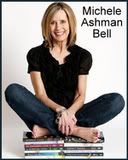
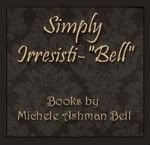





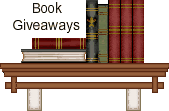
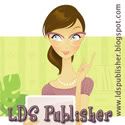














































-page-001.jpg)












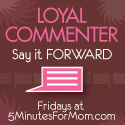
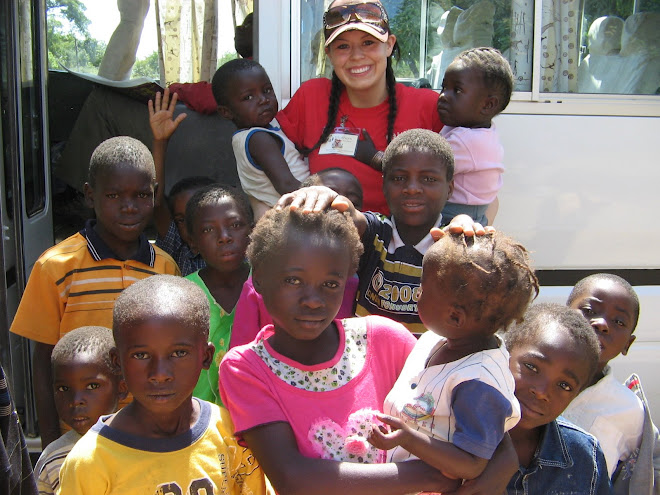
3 comments:
I love historical books! These sound intriguing. I've been looking into deafness and how it relates to the hearing world lately, and heard the same things about fear of the dark and headaches. It made my research all the more real!
Nice job.
I enjoyed this post very much and I am also feeling the pull from my PA blessing to start writing about my own ancestors.
Thank You, I need all the help I can get!
I am a BIG fan of Linda's. I've read each of her books and done (finishing last 2) reviews for them on my blog http://allisonsatticblog.com
She is a great writer and I am one of those that love the historical information she writes in the books and of course the romance. "Jenny's Dream" was my favorite too!!
Post a Comment